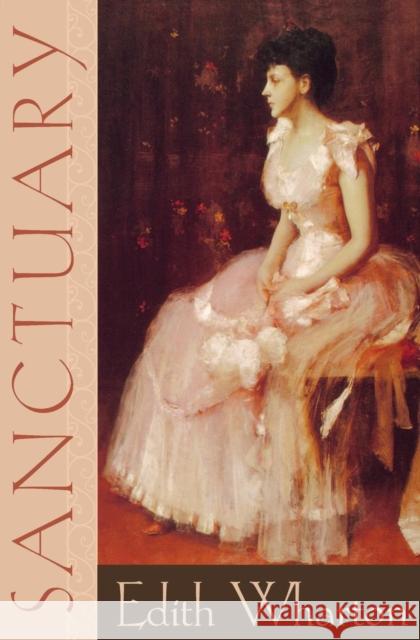Sanctuary » książka
Sanctuary
ISBN-13: 9780812217926 / Angielski / Miękka / 2001 / 216 str.
Sanctuary
ISBN-13: 9780812217926 / Angielski / Miękka / 2001 / 216 str.
(netto: 88,22 VAT: 5%)
Najniższa cena z 30 dni: 92,25
ok. 22 dni roboczych.
Darmowa dostawa!
Sanctuary Edith Wharton "It is good, ethically and artistically, to read and read again a book with such a lift."--New York Times "A striking little book, striking in its simplicity and penetration, its passion and restraint."--Times Literary Supplement Kate Orme is a young woman whose illusions of marital bliss are shattered when she comes face to face with the dark secret harbored by her fiance, the wealthy and deceptively ebullient Denis. Kate decides to go ahead and marry Denis, however, as a selfless gesture to protect any child he may conceive from inheriting their father's moral weakness. The couple does have a child, Dick, and in a marriage with a man that Kate has admittedly ceased to love, she transfers her original affections for Denis to their son. Denis dies suddenly and Kate is left to raise their young son. Knowing that Dick could have inherited the faults of his father, Kate anticipates a time when Dick's morality will be severely tested. That time comes years later when Dick, an eligible bachelor and aspiring professional, is faced with a dilemma that will affect the course of his life. With the precision, beauty, and sharp awareness of the cracks in upper-class New York society that made her one of the great writers of the twentieth century, Edith Wharton offers a subtle critique of the nature versus nurture debate that raged in the early 1900s. Sanctuary is a spare and moving investigation of the forces that impel human beings toward sin, self-doubt, and redemption. Edith Wharton (1862-1937) is the author of many critically acclaimed novels, including The Age of Innocence, Ethan Frome, and The House of Mirth. Pine Street Books 2001 216 pages 5 1/2 x 8 1/8 ISBN 978-0-8122-1792-6 Paper $19.95t 13.00 World Rights Fiction Short copy: A compelling psychological novel that explores whether moral character is inborn or shaped by environment. "A striking little book, striking in its simplicity and penetration, its passion and restraint."--Times Literary Supplement
SanctuaryEdith Wharton"It is good, ethically and artistically, to read and read again a book with such a lift."--New York Times"A striking little book, striking in its simplicity and penetration, its passion and restraint."--Times Literary SupplementKate Orme is a young woman whose illusions of marital bliss are shattered when she comes face to face with the dark secret harbored by her fiance, the wealthy and deceptively ebullient Denis. Kate decides to go ahead and marry Denis, however, as a selfless gesture to protect any child he may conceive from inheriting their father's moral weakness. The couple does have a child, Dick, and in a marriage with a man that Kate has admittedly ceased to love, she transfers her original affections for Denis to their son. Denis dies suddenly and Kate is left to raise their young son. Knowing that Dick could have inherited the faults of his father, Kate anticipates a time when Dick's morality will be severely tested. That time comes years later when Dick, an eligible bachelor and aspiring professional, is faced with a dilemma that will affect the course of his life. With the precision, beauty, and sharp awareness of the cracks in upper-class New York society that made her one of the great writers of the twentieth century, Edith Wharton offers a subtle critique of the nature versus nurture debate that raged in the early 1900s. Sanctuary is a spare and moving investigation of the forces that impel human beings toward sin, self-doubt, and redemption.Edith Wharton (1862-1937) is the author of many critically acclaimed novels, including The Age of Innocence, Ethan Frome, and The House of Mirth.Pine Street Books2001 | 216 pages | 5 1/2 x 8 1/8ISBN 978-0-8122-1792-6 | Paper | $19.95t | L13.00 World Rights | FictionShort copy:A compelling psychological novel that explores whether moral character is inborn or shaped by environment. "A striking little book, striking in its simplicity and penetration, its passion and restraint."--Times Literary Supplement











